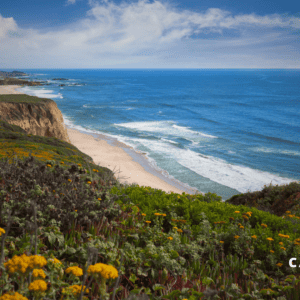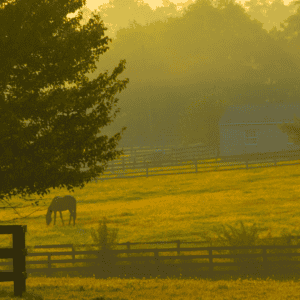West Virginia is not a state that comes to mind when you think of education opportunity. Its poor reputation when it comes to education, however, could soon change. After facing a lengthy legal battle, on October 6, 2022, a court ruled the state’s Hope Scholarship could take effect. The scholarship gives thousands of West Virginia children options beyond their traditional public school.
Background: What is the Hope Scholarship?
Thanks to a multiyear campaign by the Cardinal Institute of West Virginia, in March 2021 West Virginia passed the Hope Scholarship—which is essentially an Education Savings Account (ESA), or state-supervised funds that parents can use to pay for a wide variety of education options. The state government deposits a portion of what the state would have spent to send the child to public school into a private account that parents can use for education-related expenses.
The Hope Scholarship provides eligible West Virginia families with $4,600 per year to pay for private school tuition, curriculum, special needs therapy, transportation, and more. The program gives West Virginia parents the opportunity to customize their child’s education in a way that fits their unique learning needs.
When it passed, the Hope Scholarship was the most expansive and inclusive school choice program in the nation.
Special interest groups file lawsuit against the Hope Scholarship
Families could take advantage of the Hope Scholarship starting in the Fall of 2022, and more than 3,000 students signed up for the program. However, in January 2022 special interest groups and out-of-state lawyers filed an injunction to stop the Hope Scholarship from going into effect. These groups argued the scholarship is unconstitutional and would take money away from the public school system, even though research shows that the scholarship will not harm the public school system.
The Institute for Justice and the Cardinal Institute intervene on behalf of West Virginia families
The Institute for Justice (IJ), a nonprofit public interest law firm, filed a lawsuit to challenge the injunction and defend the program. IJ filed suit on behalf of two West Virginia parents: Katie Switzer and Jennifer Compton, who wanted to use the Hope Scholarship to improve educational outcomes for their children.
The Cardinal Institute also pushed back against this litigation that was preventing thousands of students from accessing more education options. The Institute kept West Virginia families updated on the program’s legal challenges and explained why the courts should allow the program to move forward. In op-eds, blog posts, and social media outreach, Cardinal shared the stories of West Virginia families who would have benefited from the Hope Scholarship. In an op-ed for the Washington Examiner, for example, the Cardinal Institute’s Communications Director Amanda Kieffer highlighted a West Virginia parent who wanted to use the scholarship to help pay for her daughter’s learning disability.
Hope Scholarship ruled constitutional, giving thousands of families more education choice in the Mountain State
The efforts of the Cardinal Institute and Institute for Justice paid off. On October 6, 2022, the West Virginia Supreme Court of Appeals ruled the Hope Scholarship was constitutional and dissolved the injunction that prevented the program from being implemented. With the Hope Scholarship now available, thousands of West Virginia children will have better access to a quality education they need and deserve.
West Virginia is now a model for other states looking to improve education options for their residents. The Cardinal Institute’s executive director, Garrett Ballengee, added:
“There is no doubt that this will change not only the lives of countless children in West Virginia for many generations to come, but potentially millions of kids across the country as states look to West Virginia for inspiration to go bold in their vision for better education. Since the Supreme Court ruled the Hope Scholarship constitutional, we’ve been blown away at the level of excitement exhibited by parents and families who were depending on the Hope Scholarship as a lifeline to a brighter future. This is a win for good public policy, doggedness, perseverance, coalition-building, and, most importantly, families.”
School choice policies like the Hope Scholarship are spreading to even more states. One year after West Virginia passed the Hope Scholarship, Arizona passed a law that expands the state’s Empowerment Scholarship program to all students in the state. Many other states are taking note, with more than 20 states passing parental choice policies in the 2022 state legislative sessions.
State Policy Network accelerates K-12 education reform across the country
State Policy Network works with organizations like Cardinal to advance parental choice policies like these across the country. Ballengee noted how Cardinal’s relationship with SPN helped the Hope Scholarship prevail in West Virginia:
“Landmark ideas and bold reforms require partners who can help craft vision, plan, test ideas and assumptions, and provide leveraged support. When Cardinal started seven or eight years ago, we had little idea how to do any of those things—SPN has come alongside Cardinal in myriad ways to help us build these critical capacities for change. From strategic development sessions and communications planning to mentorship and intensive brainstorming, SPN has helped Cardinal help West Virginia become a freer place. This victory doesn’t happen without this partnership.”
Related Reading
Cardinal Institute celebrates historic win for West Virginia families
Cardinal Institute
What West Virginia parents need to know about the Hope Scholarship
Cardinal Institute
Hope for education freedom deferred in West Virginia
Cardinal Institute in the Washington Examiner
Victory for School Choice in West Virginia
Institute for Justice
Case Study: How the Cardinal Institute built coalitions to pass the most expansive school choice program in the country
State Policy Network
West Virginia passes the most expansive and inclusive school choice program in the nation
State Policy Network
Hope in the Hills



